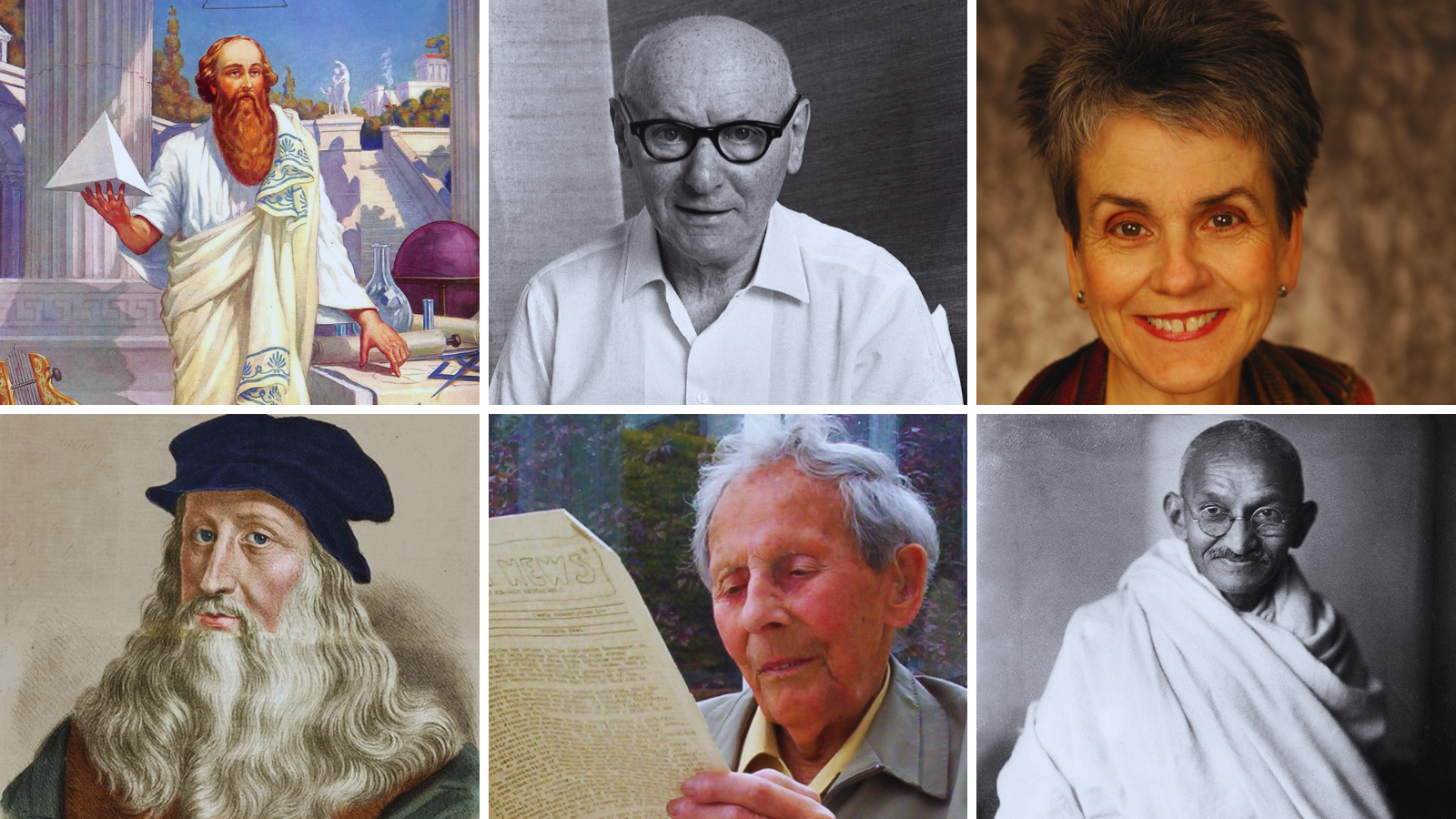Historical Vegan Figures
Historical Vegan Figures
Many people have made a lasting contribution to society throughout history by promoting an animal-friendly lifestyle and a plant-based diet.
These pioneers also referred to as historical vegan leaders, were crucial in defying conventional norms, supporting the ethical treatment of animals, and highlighting the advantages of a vegan lifestyle for both health and the environment.
These inspirational people paved the path for the current vegan movement, which is still growing today, by standing up for their beliefs and challenging the existing quo.
This article examines the accomplishments and lives of some of the most well-known historical personalities who promoted veganism, emphasizing how these individuals have shaped our ideas of kindness, sustainability, and wellness.

Why Veganism Is Important
Numerous strong arguments support the importance of veganism. The first ethical issue it addresses is that of animal welfare.
People consciously decide against animal exploitation and suffering by adopting a vegan lifestyle and respecting animals' inalienable right to live peacefully.
This kind-hearted attitude is consistent with the idea that all living things, regardless of their species, deserve respect and concern.
In addition, going vegan is a critical component of addressing the environmental catastrophe. The destruction of habitats, the release of greenhouse gases, deforestation, and water pollution are all major effects of animal husbandry.
PeopBy choosing a plant-based diet, people greatly lower their carbon footprint, save water, and lessen ecosystem stress.
By is an eco-friendly decision that promotes biodiversity preservation, fights climate change, and ensures a healthy planet for future generations.
One can improve their health and well-being by becoming vegan. A well-balanced vegan diet that includes a mix of fruits, vegetables, whole grains, and plant-based proteins can ensure you get all the nutrients you need to be healthy.
Numerous studies in the scientific community have shown how plant-based diets can help manage and prevent chronic conditions like type 2 diabetes, heart disease, and some malignancies.
A vegan diet frequently contains more fiber and beneficial plant compounds than the average diet, which improves general health outcomes. Additionally, it often contains lower levels of cholesterol and saturated fat.
By 2050, it is anticipated that there will be around 10 billion people on the planet, putting pressure on food supplies. Large amounts of land, water, and crops are needed for animal husbandry, which results in inefficiencies and food waste.
We can use agricultural resources more effectively, reduce food waste, and strive towards achieving global food security by switching to plant-based diets.
Antibiotics are frequently used in animal agriculture to encourage development and prevent illnesses in crowded, unhygienic environments.
Antibiotic-resistant bacteria are on the rise due to the overuse of antibiotics, which seriously threatens human health. We may contribute to the fight against antibiotic resistance and preserve the potency of these essential medications by consuming fewer animal products.
Numerous social justice problems, such as food justice and workers' rights, connect to veganism. Many employees in the animal husbandry sector deal with unfair working conditions, meagre pay, and shaky job security.
We can promote plant-based alternatives by advocating for just working conditions and helping to create a more just food system that puts the welfare of workers and underserved communities first.
Adopting a vegan lifestyle promotes creativity and the creation of eco-friendly substitutes.
Companies are spending on research and development to provide cutting-edge plant-based substitutes for meat, dairy, and other products derived from animals as the market for plant-based goods increases.
The transition to more ethical and ethical practices and the move toward sustainable and cruelty-free solutions propel development in the food business.
Living a vegan lifestyle can motivate others and have a beneficial knock-on impact.
People can persuade friends, family, and communities to examine and adopt plant-based habits by setting an example and discussing the advantages of being a vegan.
This group's efforts could bring a widespread transition toward a kinder and more sustainable world.
In conclusion, veganism is crucial for several reasons, including ensuring the safety of the world's food supply, preventing the spread of antibiotic resistance, advancing social justice, spurring innovation, and igniting good change.
People can help create a more moral, ecological, and inclusive future for both people and animals by adopting a vegan lifestyle.
Historical Vegan Figures
Throughout history, historical vegan personalities have been crucial in promoting plant-based diets and the humane treatment of animals.
Generations of people were motivated by these people to embrace sustainability and compassion, leaving a lasting impression on society. Here are a few notable vegans from history, along with their contributions:

1. Pythagoras (c. 570 BCE – c. 495 BCE)
Due to his support for a plant-based diet, Pythagoras, a philosopher and mathematician from ancient Greece, is frequently called the father of vegetarianism.
He held to the ideas of the transmigration of souls or that after death, souls are born again into various bodies and the inherent interdependence of all living things.
Because of this conviction, his ethical teachings advocated nonviolence and compassion for all living things.
Pythagoras thought people could live a more honourable and peaceful life by avoiding eating meat. In his perspective, this connection was violated by eating animal flesh, which he also saw as bad for one's moral and spiritual health.
Pythagoras promoted vegetarianism among his followers and had a vegetarian lifestyle himself.
Pythagoras led a vegetarian diet and encouraged his disciples to follow suit, highlighting the significance of treating all living things with care and respect.
He profoundly impacted intellectual and ethical thought, laying the groundwork for the present animal rights movement with his teachings on vegetarianism and the righteous treatment of animals.
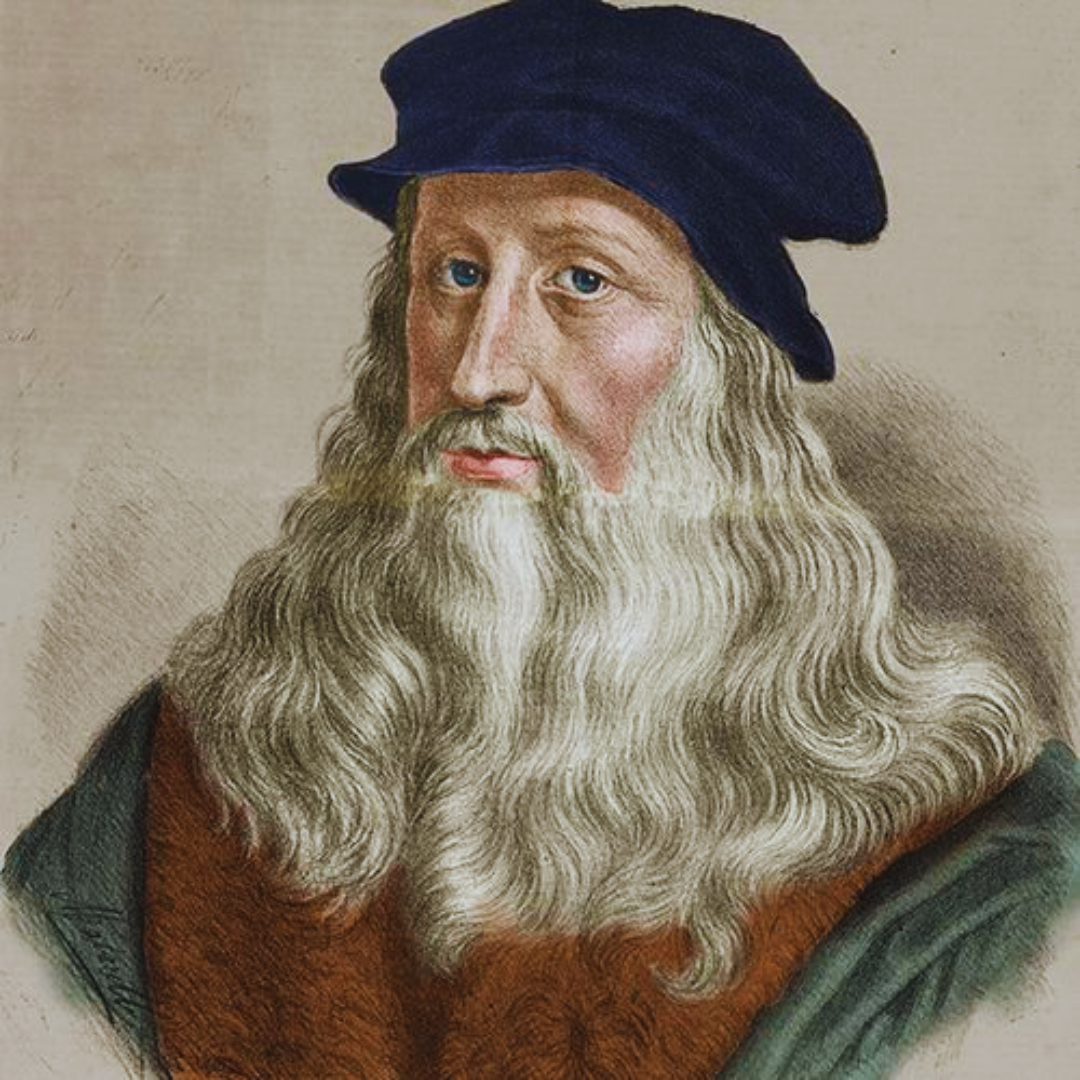
2. Leonardo da Vinci (1452-1519)
The renowned Italian polymath, artist, and inventor Leonardo da Vinci led a vegetarian lifestyle then. Da Vinci was a vegetarian because he greatly respected animals and thought all living things were valuable in and of themselves.
He believed eating meat to be a violent act against the laws of nature. Da Vinci thought that by adopting a vegetarian diet, people might align themselves with this harmonic relationship and that humans should seek to live in peace with nature.
He was renowned for his sympathy for all living things, frequently buying caged birds to release them and speaking out against animal abuse.
Vegetarianism reflected Da Vinci's larger philosophical and ethical convictions, highlighting the interconnection of all things.
The interdependence of all life forms and the significance of maintaining a healthy relationship with nature were fundamental themes in Da Vinci's broader philosophical and ethical convictions mirrored in his vegetarian lifestyle.
His decision to abstain from meat intake demonstrated his concern for animals. It served as a living example of his commitment to encouraging a more thoughtful and peaceful way of life.
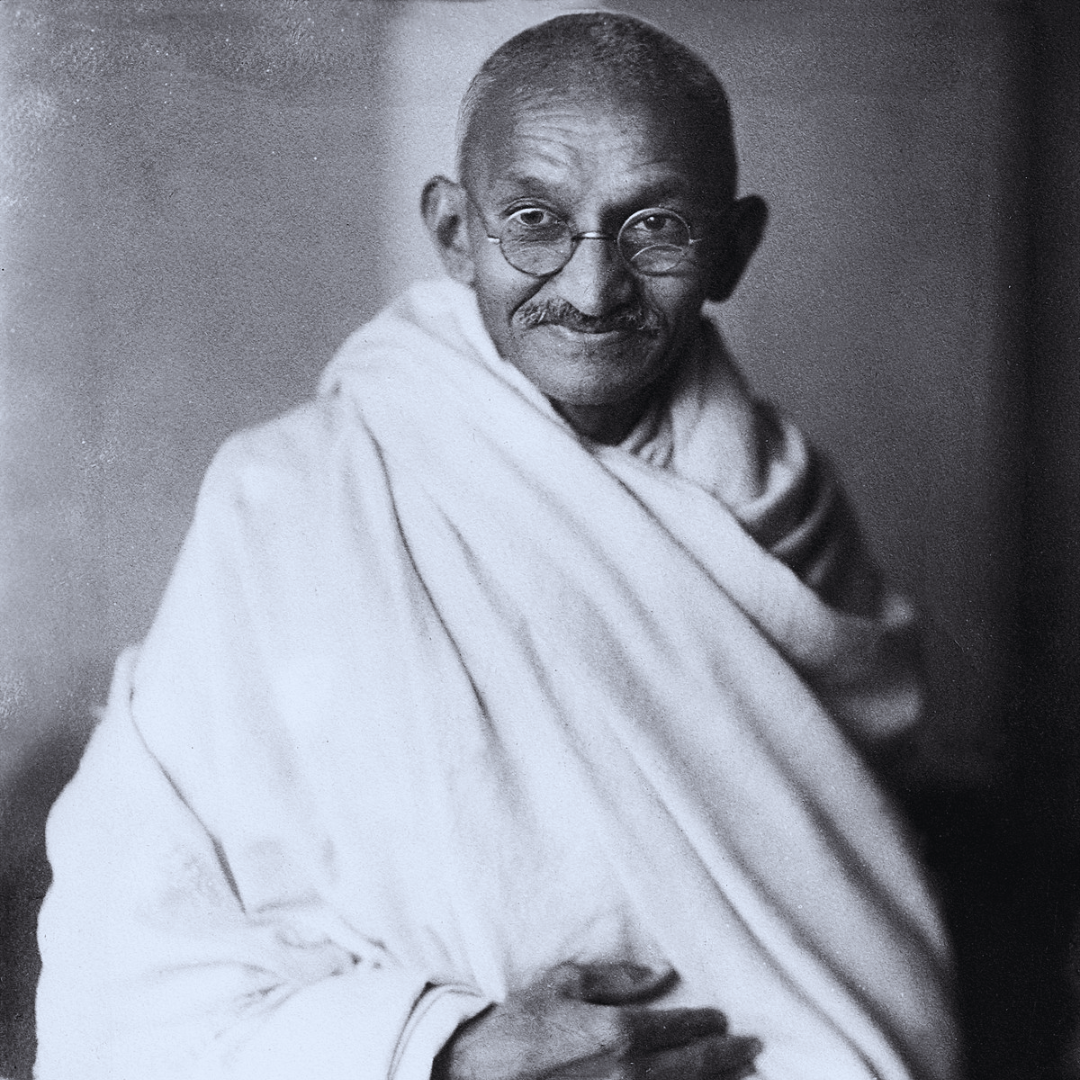
3. Mahatma Gandhi (1869-1948)
Mahatma Gandhi, a leader and proponent of nonviolent resistance known around the world, was a devoted vegetarian for the entirety of his life.
Gandhi believed in nonviolence and compassion, and his vegetarianism was a profound manifestation of these ideas.
A civilization's moral character may be seen in how it treats its animals, and he thought that cruelty towards animals continued a culture of violence throughout society as a whole.
Gandhi believed that vegetarianism was a way to live in harmony with the principles of ahimsa (nonviolence) and respect for all living things.
He strongly believed that people might develop a profound empathy and regard for all living things by giving up meat and adopting a plant-based diet.
Gandhi's dedication to vegetarianism was profoundly entwined with his nonviolence theory and practice, making it a crucial component of his fight for social justice and a more compassionate world.
Inspiring people worldwide to adopt vegetarian and vegan lives to foster peace and compassion, his influence on vegetarianism and its link to nonviolence has had a lasting effect.

4. Donald Watson (1910-2005)
Donald Watson, a British vegan activist born in 1910, made significant contributions to the vegan cause. He is credited with using the term “vegan” in 1944.
Watson and his wife Dorothy established the Vegan Society to advocate a way of life free from animal exploitation.
Watson decided to coin the term “vegan” because he thought those who abstain from meat and all animal products needed a specific phrase to identify them.
He felt that vegetarianism, which only focused on avoiding meat, must be revised to solve the problem of animal exploitation adequately.
Watson favoured a more thorough strategy that avoided dairy, eggs, and other animal-derived things.
Through the Vegan Society, Watson aggressively pushed vegetarianism as a moral stance against animal abuse.
He underlined the moral ramifications of using animals for food, clothing, entertainment, and other uses and urged people to live a vegan lifestyle to reject such customs.
Watson's efforts were crucial in spreading awareness of the moral issues of using animals and making veganism a unique and significant movement.
In addition to developing the term “vegan” and starting the Vegan Society, Watson made numerous other contributions.
He also contributed significantly to creating vegan policies and tools, such as the first issues of The Vegan News (later renamed The Vegan) magazine.
For people considering living a vegan lifestyle, these publications provide advice on vegan nutrition, recipes, and ethical issues.

5. Isaac Bashevis Singer (1902-1991)
The Nobel laureate in literature and well-known author Isaac Bashevis Singer was a steadfast vegetarian and outspoken supporter of animal rights.
Singer wrote extensively about the interconnectedness of all living things and the ethical issues surrounding human interactions with animals throughout his literary career.
Compassion, empathy, and humans' moral obligations toward animals were frequent themes in Singer's books.
He exposed the horrors of factory farming, animal testing, and the usage of animals for human pleasure in his stories, which highlighted the plight of animals in numerous situations.
Singer emphasized the need for people to understand and respect the intrinsic dignity of all species because she thought how animals were treated was a good moral barometer of humanity.
As a vegetarian, Singer abstained from eating meat and encouraged others to do the same. In line with his conviction that all living things are interconnected and have a common destiny, he considered vegetarianism an extension of his moral principles.
According to Singer, choosing not to consume meat is a compassionate act that rejects the exploitation and needless suffering perpetrated upon animals.
Beyond his literary works, Singer had a wide-ranging impact. He actively participated in public dialogue, delivering interviews and talks on vegetarianism, animal ethics, and animal rights.
Through his campaigning, he aimed to spread knowledge about animal exploitation's moral ramifications and inspire people to reexamine their attitudes toward animals.

6. Frances Moore Lappé (born 1944)
Influential American author, campaigner, and proponent of food systems Frances Moore Lappé was born in 1944. Her ground-breaking book, “Diet for a Small Planet,” which was initially released in 1971, helped her achieve wide-ranging fame.
The book was a major work that fundamentally altered how individuals perceived dietary decisions and their effects on the environment and society.
Lappé concentrated on animal agriculture's ethical and environmental effects in “Diet for a Small Planet.”
Regarding resource utilization, land degradation, and greenhouse gas emissions, she emphasized how inefficient meat production is.
According to Lappé, the world's predominantly animal-based food system is a factor in social injustice, environmental harm, and food scarcity.
To solve these problems and encourage a more sustainable future, Lappé argued in favour of a plant-based diet.
She strongly argued that plant-based diets might feed the world's population more sustainably and effectively.
Lappé underlined that by switching to a diet heavy on plants, people might lessen their ecological imprint, save resources, and slow climate change.
The book “Diet for a Small Planet” struck a chord with a broad readership and was instrumental in spreading the notion that dietary decisions had wider social and environmental repercussions.
Inspiring many individuals to reevaluate their eating patterns and switch to a more plant-based diet, Lappé's book catalyzed the vegetarian and vegan movements.
The work of Frances Moore Lappé has had a long-lasting influence on both environmental advocacy and the food sector.
Lappé was instrumental in bringing attention to the links between dietary choices, sustainability, and social justice by emphasizing animal husbandry's moral and ethical ramifications and her advocacy of plant-based diets.
Her contributions motivate people and groups to adopt ethical food decisions that benefit a more livable and sustainable planet.
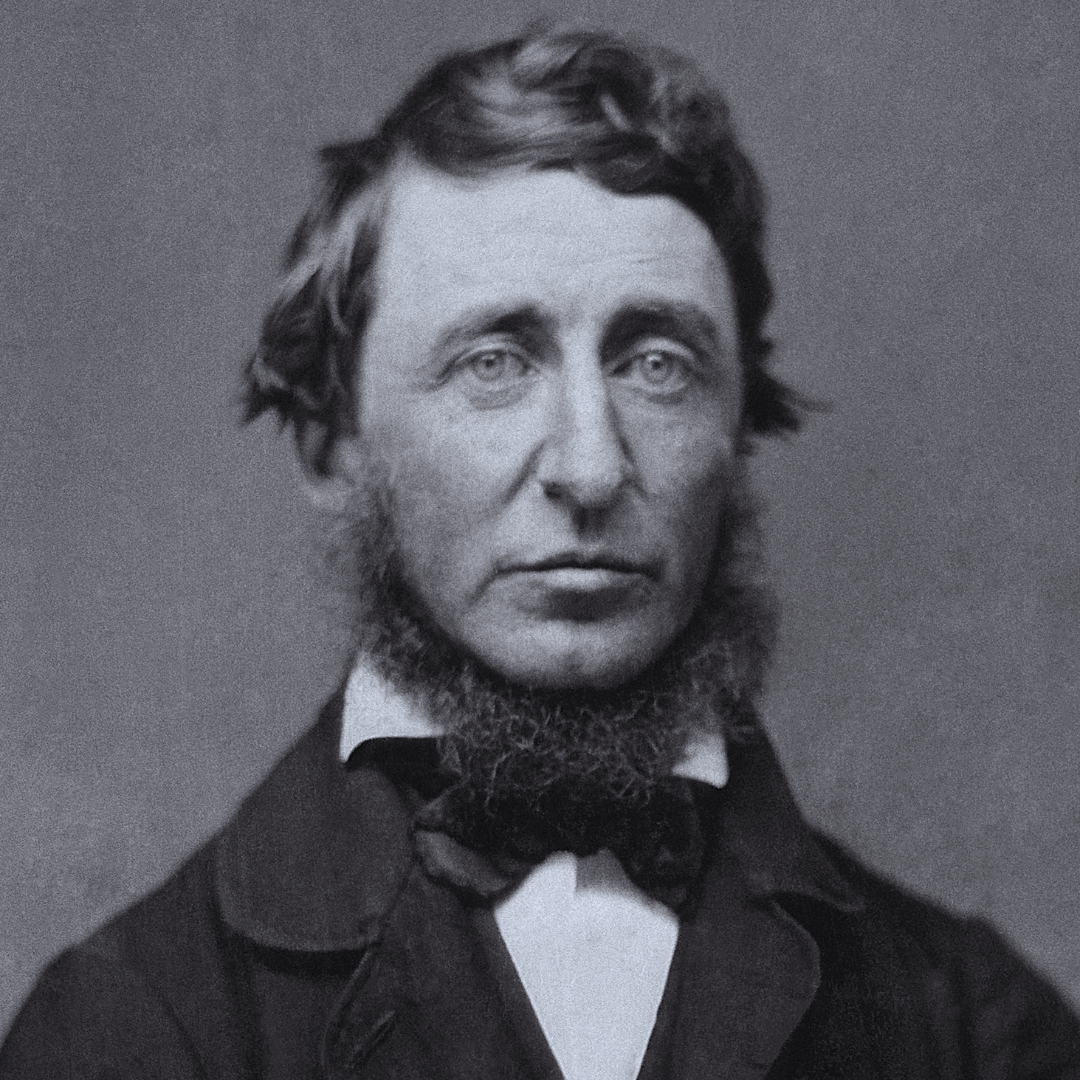
7. Henry David Thoreau (1817-1862)
Henry David Thoreau, a famous American philosopher, author, and naturalist, was born in 1817. Despite not being a devout vegetarian,
Thoreau emphasized his support for vegetarianism and expressed his disapproval of the cruelty of killing animals for sustenance.
Thoreau wrote of his two years living in a small cottage next to Walden Pond, getting lost in nature, and learning to fend for himself in his ground-breaking book “Walden” (1854).
Throughout the book, Thoreau emphasized the value of acquiring a deep regard for all life forms and living in harmony with the natural environment.
The moral ramifications of eating meat were a frequent topic of Thoreau's observations and musings in “Walden.”
He questioned the need for and validity of animal killing for food, pointing out the inherent cruelty and suffering that goes along with it.
Thoreau held a strong moral conviction that we must treat all animals with kindness and compassion because he understood the interconnection of all living things.
Although Thoreau occasionally consumed meat while living at Walden Pond due to the difficulties of self-sufficiency, he emphasized in his writings a wish for a more compassionate and moral approach to food eating.
He pushed for a stronger bond with the natural environment and a more thoughtful awareness of how our activities affect it and the creatures living there.
Environmentalists, conservationists, and anyone who values animals ethically have all been greatly influenced by Thoreau's writings and philosophical views.
People are still motivated to reexamine their relationships with animals by his emphasis on living in harmony with nature, appreciating all life forms, and challenging the morality of animal exploitation.
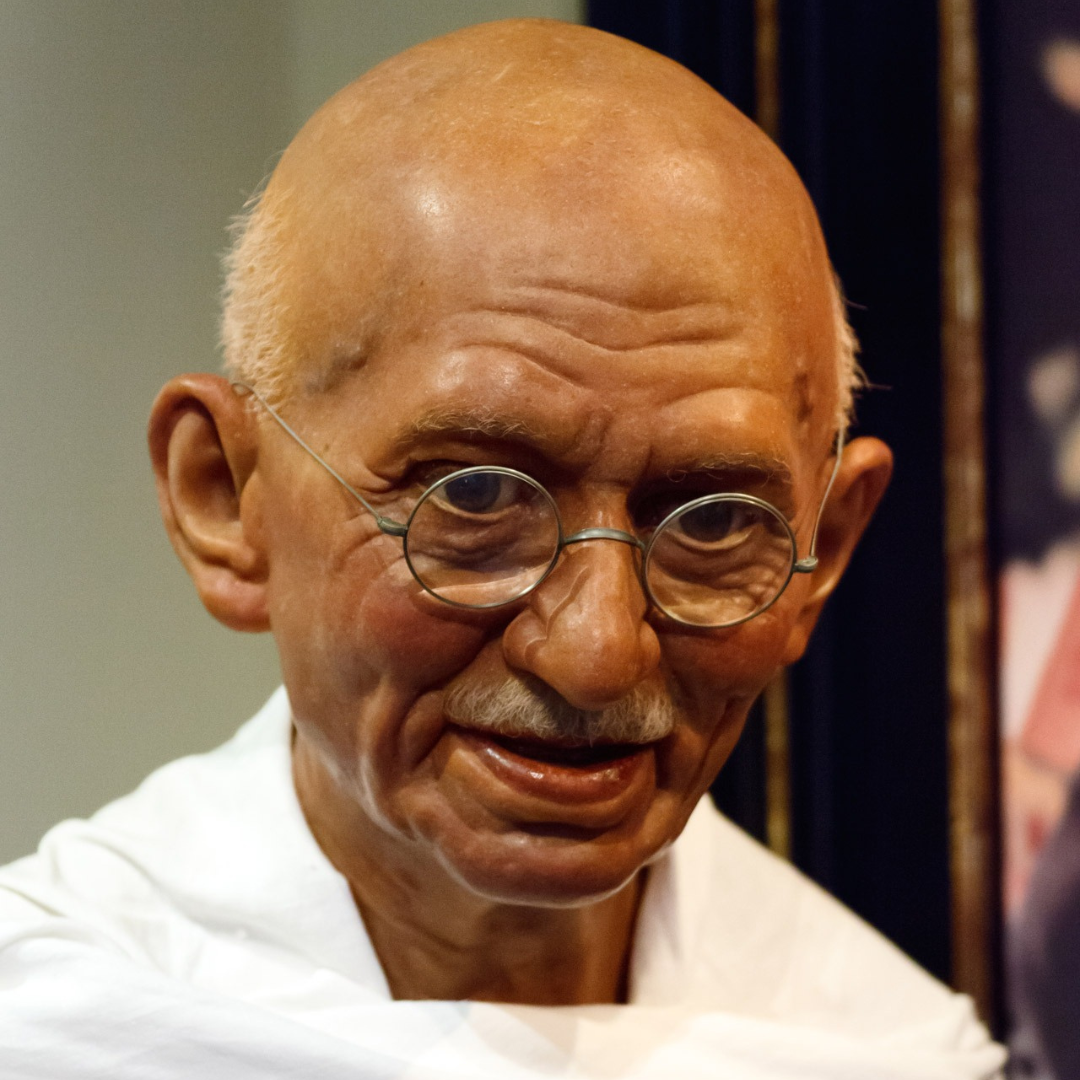
Conclusion
In conclusion, influential historical figures have contributed significantly to the development and propagation of the vegan cause.
These people have contributed to and shared a similar vision of compassion, sustainability, and ethical treatment of animals despite their various origins.
These historical personalities have significantly influenced how we view and practice veganism today, from Pythagoras and his conviction that all living things are interconnected to Donald Watson, who invented the term “vegan” and established the Vegan Society.
Their advocacy now encompasses broader ethical issues, societal ramifications, and food preferences. People like Mahatma Gandhi emphasized nonviolence and the moral character of a community based on how animals are treated.
These historical people have acted as change agents, motivating subsequent generations to live empathetic and environmentally responsible lifestyles.
They have questioned accepted social mores and brought attention to the significance and connection of all life.
Their contributions have influenced how people talk about issues like animal rights, sustainability, and our moral obligations to the environment.
I trust you enjoyed this article about Historical Vegan Figures. Please stay tuned for more blog posts to come shortly. Take care!
JeannetteZ
>>>Want To Learn How To Create Delicious, Cruelty-Free, Healthy AND 100% Vegan Meals? Try These Awesome Vegan Cooking Courses With A Free 7-DAY MEMBERSHIP<<<
Your Opinion Is Important To Me
Ideas? Thoughts? Questions? I would love to hear from you. Please leave me your questions, experience, and remarks about the Historical Vegan Figures article in the comments section below. You can also reach me by email at Jeannette@LivingTheVeganLifestyle.org.
Disclosure
This post may contain affiliate links. I earn from qualifying purchases as an Amazon Associate and other affiliate programs. Please read my full disclosure.
Here are links to some of my favourite articles:
Best Vegan Desserts Without Sugar
Best Vegan Grocery Shopping List
Best Vegan Budget-Friendly Meals
Best Vegan Cottage Cheese Recipes For Your Kids

